
One of the unique aspects about naval helicopters – one that often falls into a grey zone between helicopter manufacturer and shipbuilders – is the helicopter traversing system.
On a warship, landing of the helicopter marks the beginning of another important evolution that must be handled with equal precision and alacrity: the movement of helicopter from deck to hangar (known as 'strike down') and vice-versa (known as 'ranging' on deck). Why are these two evolutions important? Simple. The process of strike down and ranging imposes limitations on the warship's maneuvering, thereby rendering it vulnerable to both medium and adversary.
Consider a 6000-ton warship cutting through the waves with a 12-ton helicopter onboard. The only things holding the helicopter on deck, or in hangar, are the tie-downs or moorings. These must come off during traversing. Time, tide and formation wait for no one. Nobody in a seagoing fleet has abundant patience, neither is the medium (sea) always calm or forgiving. When the moorings are removed for traversing, something must hold ship and helicopter together. Once we have that figured out, a system should be in place that moves the helicopter through those few metres when everything else is conspiring to tip it overboard. That job is done by a Helicopter Traversing Systems (HTS).
Light helicopters like the 2-ton Alouette (Chetak) depend on a human HTS (call it ‘one-two-six-push’ or 'heave-ho' if you will). A steering arm is attached to the nose wheel, lashings are removed or shifted on the move (called ‘running lashings’), deck crew 'manhandle' the helicopter, while a supervisor barks "slight starboard", "slight port", "midships", "on brakes", "off brakes", "stop pushing", etc over the roar of machinery noise. This is HTS version 1.0!
This story is from the March 2020 edition of Global Aviator.
Start your 7-day Magzter GOLD free trial to access thousands of curated premium stories, and 9,000+ magazines and newspapers.
Already a subscriber ? Sign In
This story is from the March 2020 edition of Global Aviator.
Start your 7-day Magzter GOLD free trial to access thousands of curated premium stories, and 9,000+ magazines and newspapers.
Already a subscriber? Sign In

Edelweiss, The Sound of Music, Grossglockner And Snow, Lots And Lots Of Snow
Austria is a wonderland of mountains, green pastures, lakes and . . . mountains
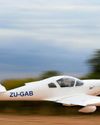
Zimbabwe Air Rally 2021 Part two
The following day we were up early to watch the departure air show once again, it is a large amount of razzle-dazzle to be honest.

Boeing 727 One Crash Per 2 30 6300 Flying Hours
The Boeing 727 is a narrow-body airliner. The first 727-100 rolled out 27 November, 1962, first flew on 9 February, 1963, and entered service with Eastern on 1 February, 1964.

Taking Flight On Another World
The Mars Helicopter, Ingenuity, is a technology demonstration model to test powered, controlled flight on another world for the first time. It hitched a ride to Mars on the Perseverance rover. Once the rover reached a suitable "airfield" location, it released Ingenuity to the surface so it could perform a series of test flights over a 30-Martian-day experimental window.
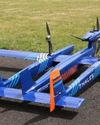
Thales Completes Successful First Flight Of New UAS With Range Capabilities Of Over 100 Km
• With a hybrid propulsion system for optimum safety, endurance and discretion, Thales's UAS 100 long-range unmanned air system for civil, government and military users will be able to operate at ranges of more than 100 km. • UAS 100 combines world-class flight safety performance with the compact design required for unmanned air systems, and complies with future European regulations for drone flights over populated areas. • The system will meet the requirements of a broad range of missions, including infrastructure inspection, coastal surveillance, border surveillance, event security, search-and-rescue and military operations.
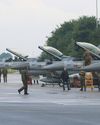
Dutch Squadron Finalises F-16 Operations
The Royal Netherlands Air Force 322 squadron based at Leeuwarden air force base terminated its operations on the F-16 “Fighting Falcon” early July (2021). With the gradual ongoing new deliveries of its successor, the Lockheed Boeing F-35A “Lightning II”, it was time for the squadron to focus only on the embedding of the new jet in the unit.
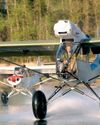
Double Ended Project: Where Is It Now
Traditionally, bush and STOL aircraft have been little more than modified certified trainers, with engine and prop upgrades, or the addition of fatter tyres. However there have been attempts to improve the safety aspect of this type of flying.
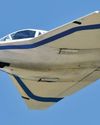
Dyke Delta Lookalike Fighter Kit Plane
The Dyke JD-2 Delta is an American homebuilt aircraft designed in the United States in the 1960s and marketed for amateur construction. It is a monoplane with retractable tricycle undercarriage and seating for four.
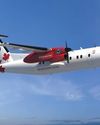
Pratt & Whitney Canada Advances Sustainable Hybrid-Electric Propulsion Technology, Contributing to Canada's Green Recovery Plan
Pratt & Whitney Canada (P&WC), plans to advance its hybridelectric propulsion technology and flight demonstrator programme as part of a $163M CAD investment, supported by the governments of Canada and Quebec.
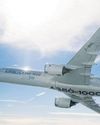
Airbus showcases the A350-1000 for the first time in Russia at the MAKS 2021 International Aerospace Show
Airbus demonstrated its latest technological innovations and projects implemented in Russia at the International Aerospace Show which took place in Zhukovsky from 20 to 25 July.